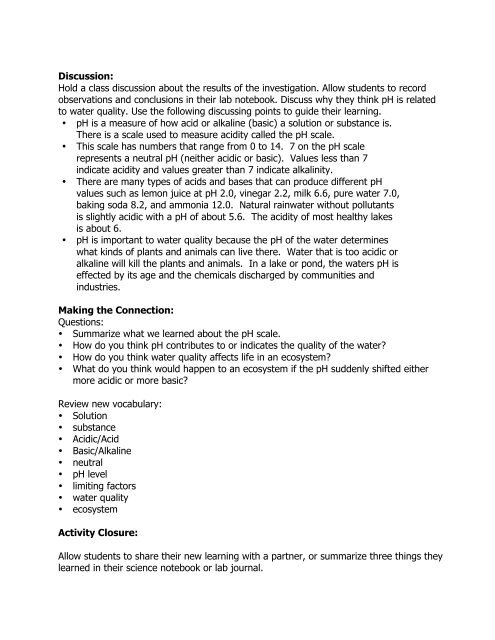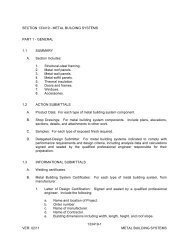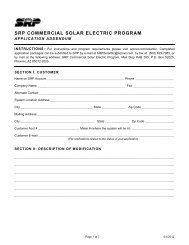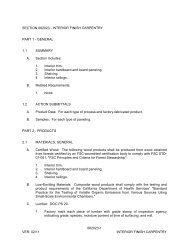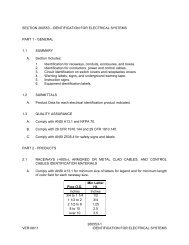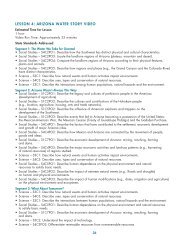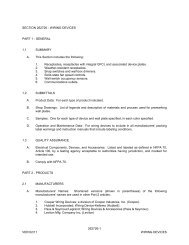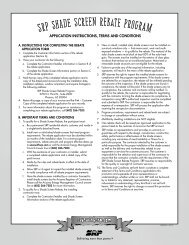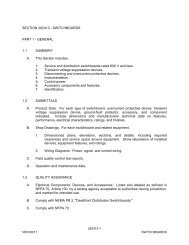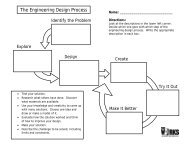How Do We Know What is Healthy Water? - Salt River Project
How Do We Know What is Healthy Water? - Salt River Project
How Do We Know What is Healthy Water? - Salt River Project
Create successful ePaper yourself
Turn your PDF publications into a flip-book with our unique Google optimized e-Paper software.
D<strong>is</strong>cussion:<br />
Hold a class d<strong>is</strong>cussion about the results of the investigation. Allow students to record<br />
observations and conclusions in their lab notebook. D<strong>is</strong>cuss why they think pH <strong>is</strong> related<br />
to water quality. Use the following d<strong>is</strong>cussing points to guide their learning.<br />
• pH <strong>is</strong> a measure of how acid or alkaline (basic) a solution or substance <strong>is</strong>.<br />
There <strong>is</strong> a scale used to measure acidity called the pH scale.<br />
• Th<strong>is</strong> scale has numbers that range from 0 to 14. 7 on the pH scale<br />
represents a neutral pH (neither acidic or basic). Values less than 7<br />
indicate acidity and values greater than 7 indicate alkalinity.<br />
• There are many types of acids and bases that can produce different pH<br />
values such as lemon juice at pH 2.0, vinegar 2.2, milk 6.6, pure water 7.0,<br />
baking soda 8.2, and ammonia 12.0. Natural rainwater without pollutants<br />
<strong>is</strong> slightly acidic with a pH of about 5.6. The acidity of most healthy lakes<br />
<strong>is</strong> about 6.<br />
• pH <strong>is</strong> important to water quality because the pH of the water determines<br />
what kinds of plants and animals can live there. <strong>Water</strong> that <strong>is</strong> too acidic or<br />
alkaline will kill the plants and animals. In a lake or pond, the waters pH <strong>is</strong><br />
effected by its age and the chemicals d<strong>is</strong>charged by communities and<br />
industries.<br />
Making the Connection:<br />
Questions:<br />
• Summarize what we learned about the pH scale.<br />
• <strong>How</strong> do you think pH contributes to or indicates the quality of the water?<br />
• <strong>How</strong> do you think water quality affects life in an ecosystem?<br />
• <strong>What</strong> do you think would happen to an ecosystem if the pH suddenly shifted either<br />
more acidic or more basic?<br />
Review new vocabulary:<br />
• Solution<br />
• substance<br />
• Acidic/Acid<br />
• Basic/Alkaline<br />
• neutral<br />
• pH level<br />
• limiting factors<br />
• water quality<br />
• ecosystem<br />
Activity Closure:<br />
Allow students to share their new learning with a partner, or summarize three things they<br />
learned in their science notebook or lab journal.


